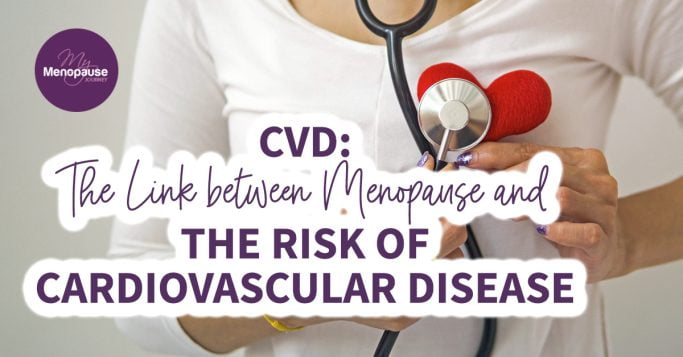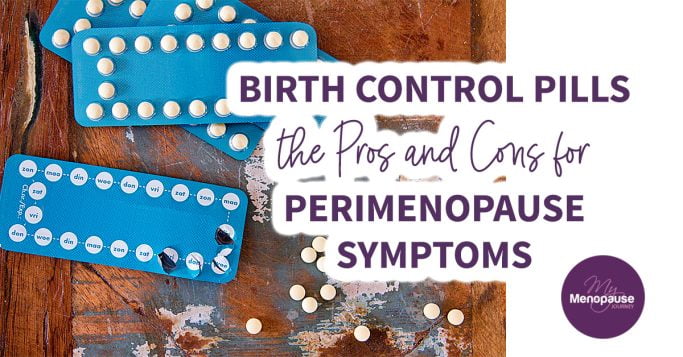“He used to be the nicest guy, but now he has become so grumpy.”
I’ve heard girlfriends say this about their husbands, and this concern bewilders them because they don’t know where it’s coming from. If your once energetic and caring husband suddenly becomes tired and less motivated, he might be going through male menopause or andropause.
Even men go through “the change”. It’s not evolution playing a little joke on you – men experience a male version of menopause.
Andropause brings about many changes in your partner’s life, as menopause does to yours. As he faces this unexpected and little-known change, he needs your support and understanding. One way to help him and keep your relationship alive is to understand what happens during andropause!
Can men really go through their own version of menopause? Listen, as Dr. Berg explains all the ins and outs of andropause [3:31]!
What Happens When A Man Goes Through Andropause?
Andropause, better known as male menopause, is a stage in a man’s life when his testosterone levels decline.
Testosterone is produced in a man’s testicles and adrenal glands.
Its functions include:
- maintaining libido
- regulating mood
- strengthening the bones
- controlling body fat
- maintaining metabolism and energy
- building muscle mass
- managing stress
Andropause usually occurs between the ages of 40 to 60, but it can also begin in the early 30s. As testosterone goes down, a wide variety of symptoms will also show up.


Unlike menopause, experts say andropause progresses slowly. It is difficult to classify in stages, and it doesn’t follow any timeline. When a man reaches 40, his testosterone levels decline at a rate of 1% every year. Thyroid hormones, DHEA and progesterone are also affected, because testosterone helps stimulate their production.
Progesterone and testosterone are especially important in stimulating the release of neurohormones, like serotonin, dopamine and endorphins. As a result, mood and thought processes are also affected.
Aside from aging, stress during midlife may also add up to fluctuating testosterone levels. A diet rich in processed and fatty foods, as well as lack of sleep, can hasten the declining levels of a man’s testosterone. In fact, fat can convert testosterone to estrogen in overweight men. This is how men get “man boobs.”
Signs That He’s Going Through Male Menopause
So how will you really know if your man is going through andropause? The symptoms can be quite varied, but here are some telltale signs that you can watch out for!
- Low sexual desire
- Decreased sex frequency, also known as senior slump
- Erectile dysfunction
- Weight gain
- Decrease muscle mass
- Reduction in body and facial hair
- Hot flashes
- Mood changes
- Depression and anxiety
- Irritability
- Insomnia
- Brain fog
- Fatigue
- Low energy
Although men may experience these symptoms during andropause, some go through the transition without feeling anything. According to experts, this pleasant journey to andropause can be accredited to healthy eating, good food choices, regular exercise and weight management.
I previously said that the average age of andropause is between 40 to 60, but experts say, the onset of these symptoms may also happen in their later years like in their 80s.
In this interesting video with John Gray, author of “Men Are from Mars, Women Are from Venus”, he talks about how we can build a better relationship and boost testosterone for men and estrogen for women. Listen to it! I find it very interesting and gives me a better understanding.
John Gray – Keys to a better relationship, and boosting testosterone among men [30:18]:
How to Tell If Male Menopause Is Lurking Around the Corner?
If you’re suspecting that your partner is going through andropause, one of the best things to do is have him check his hormone levels. Testosterone isn’t the only hormone that goes down during this time, so it’s good to have other tests as well. You can read our article about menopause tests to know more about different self-test kits to check hormone levels.
If he’s experiencing andropause symptoms, there are many ways to ease the discomfort.
12 Natural Ways to Combat Testosterone Loss
Like menopause, there’s no way we can stop andropause because it’s a natural life transition. However, your partner can support his hormone-producing glands and take care of his health to prevent testosterone loss. Here are some of the best things to prevent hormone loss
Increase exercise. Studies show that increasing physical activity (especially HIIT and strength training) increases testosterone production, no matter what age!
Eat plant-based, organic or grass-fed proteins. A substance called sex hormone-binding globulin (SHBG) reduces testosterone levels. Eating proteins will decrease the effect of SHBG and also help build and maintain muscle mass.
Many men eat a lot of meat, and many animals are fed estrogen-like compounds that promote weight gain and milk production. If we eat this kind of meat, we get “bad” estrogens in our body that block testosterone and decrease testosterone activity. Always choose grass-fed, organic.
Eat more cruciferous veggies! Brussel sprouts, broccoli and cabbage are just some examples of these veggies. They are rich in indole-3-carbinol, which keeps a man’s estrogen levels in check. Men have estrogen too, and when levels are not kept in check, they will overpower testosterone, further suppressing its production in both the testicles and adrenal glands.
Eat food items that increase testosterone production. Choose foods that are rich in zinc, vitamin D, Omega 3 and calcium. They stimulate the testicles to increase its activity and create more testosterone.
Reduce stress! Stress produces cortisol and this hormone suppresses the adrenal glands from producing testosterone. Do this by enjoying some time alone or go for a relaxing vacation.
Get enough sleep. Bear in mind that getting quality and quantity sleep is a must! Dr. Michael J. Breus of the American Board of Sleep Medicine said that a man’s testosterone levels increase as he sleeps and decreases the longer he’s awake. He also added that the highest levels of testosterone production occur during REM sleep – the period late in the sleep cycle that helps replenish the body and mind.
Take a rest. In addition to getting enough sleep, it’s important to take a break during the day. It can be napping for a few minutes, taking a walk, reading a book or magazine, playing sudoku or crossword – anything that will relax the body.
Supplement with zinc. Zinc is one busy mineral when it comes to hormone balance. In the same way it helps in estrogen production in women, zinc also helps men produce more testosterone. It also helps in sperm formation and sperm motility.
Try chrysin. Chrysin is a natural compound found in honey, propolis and passionflower. It helps boost testosterone by preventing the hormone from being converted into estrogen. Increase the absorption of chrysin in your body by taking another supplement, called piperine, which is found in peppers, especially black pepper. There are plenty of organic and natural chrysin and piperine supplements on the market today!
Use more nettle root! If you’re wondering what this herb can do, nettle root actually liberates testosterone from the sex hormone-binding globulin (SHBG). When testosterone binds with SHBG, it is automatically deactivated and deemed useless in the body. But with nettle root, trapped testosterone frees itself, and it becomes viable again.
Supplement with Tongkat Ali and Maca. These two medicinal plants are natural testosterone boosters and aphrodisiacs. Tongkat Ali and Maca have compounds that help regulate estrogen to give way for more testosterone production.
Consider using a natural DHEA supplement. DHEA is called the mother of all hormones for a reason! It can convert itself to estrogen, but it’s also a great precursor to testosterone.
You can check out other tips that will also help raise testosterone levels here: What-are-12-steps-to-raise-testosterone-activity-naturally.
Other Ways to Ease Andropause Symptoms
Pregnenolone, a hormone found naturally in the body, has been found to increase hormone production in both men and women. Like DHEA, this hormone can be converted to different kinds of hormones from estrogen, testosterone, progesterone, and even melatonin.
For this reason, some experts suggest that men consider using pregnenolone cream to support hormone balance. Aside from its ability to stimulate hormone production, pregnenolone is an effective libido booster.
The Takeaway
While there are quite some similarities between menopause and andropause, women and men go through them differently. When it comes to bodily issues, men tend to keep it to themselves. Sex, depression and loss of masculinity are sensitive topics that men usually don’t talk about.
So as for the men reading this, don’t fret! Open up to your partner – it doesn’t make you less of a person, we promise.
The key is having an open communication because women’s role as partners is to make you feel understood and loved after all.
For women, speak the “man language”, which involves more perceptive listening, less talking, and attentively recognizing his needs. By doing this mutually, chances are you will even turn your midlife struggles into an opportunity to make your partnership in your middle years even better!
Support him as he goes through this stage in his life!
Let´s support each other. We would love to hear your thoughts, along with your or your husband’s experience with andropause, so feel free to add your comments below ?
Increase awareness about andropause by using the share buttons in this article, so more women can get help and feel great!
Our sources:
www.menstuff.org/issues/byissue/andropause.html
www.drlam.com/blog/andropause-symptoms/24901/
www.ncbi.nlm.nih.gov/pmc/articles/PMC4046605/
www.mayoclinic.org/healthy-lifestyle/mens-health/in-depth/male-menopause/art-20048056
drmasley.com/what-are-12-steps-to-raise-testosterone-activity-naturally/?fbclid=IwAR0ZaJcGuLjRJtZEylslMpBPgQZEsbV2_6HZrgxngsBxi2fkCHr8gdBczD8
www.genemedics.com/hormone-therapy/mens-hormones/pregnenolone/
thesleepdoctor.com/2020/02/01/how-sleep-impacts-testosterone-and-why-its-important/?cn-reloaded=1





Gita is the founder of My Menopause Journey. Since 2014, she has been supporting midlife women by sharing hard-earned learnings from her own experience. To advance her knowledge, Gita puts a lot of her time and effort into understanding the broad spectrum of women’s health. She immerses in extensive research about the physical, mental and emotional aspects of menopause. Gita believes in the life-changing power of healthy, holistic living — this is where she anchors her message to all women. Learn more about her marvelous mission in About us - My Menopause Journey.